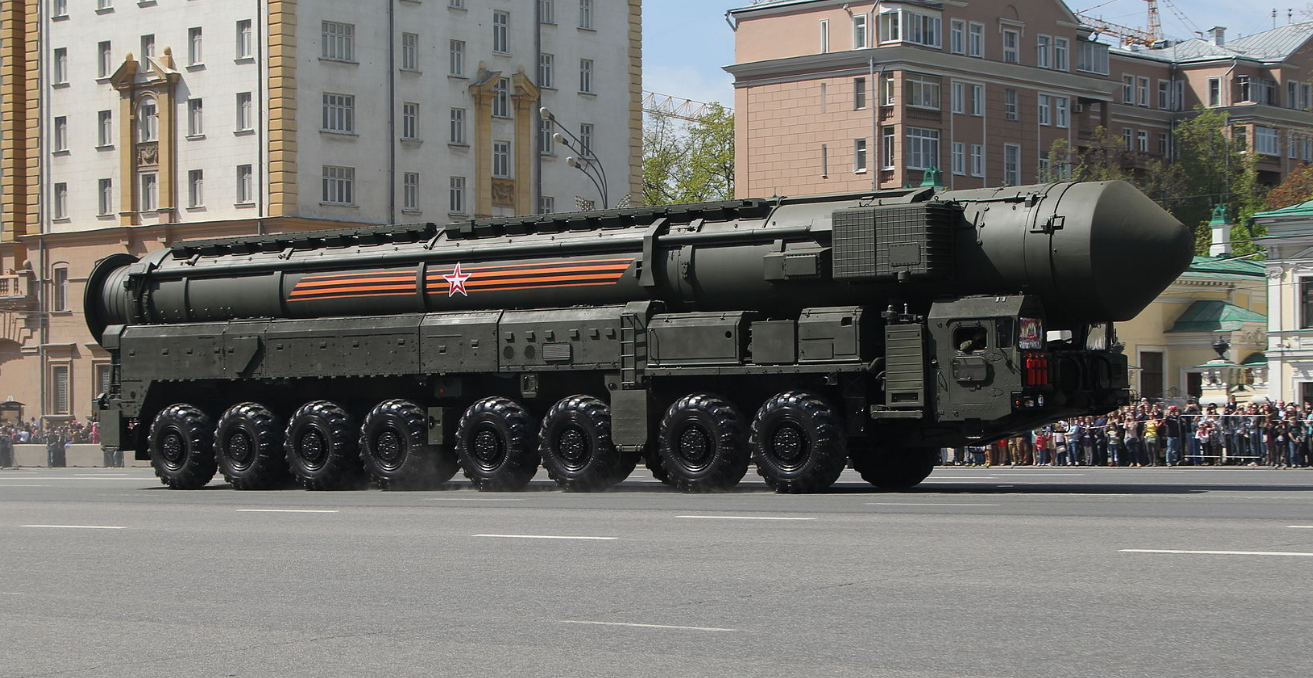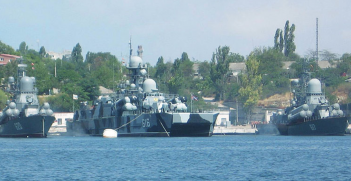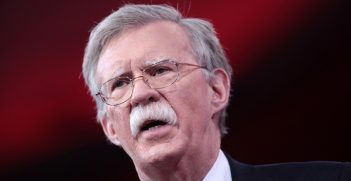The Blame Game on Nuclear Testing Risks Wider Dangers

The accusations about Russian nuclear weapon testing by senior US officials are a dangerous game to be playing and point to a worrying pattern in the Trump administration.
If a senior US official’s recent statement that Russia is “probably not adhering“ to the rules of the Comprehensive Test Ban Treaty (CTBT) is true, the world would be in serious trouble. The claim was made on 29 May by Lt Gen Robert Ashley, director of the US Defense Intelligence Agency.
Ashley’s statement implied that Russia was carrying out low-yield nuclear tests in secret, and although he amended his position later by saying that Russia has the capability to do this — rather than that it is already doing this — his remarks nonetheless caused alarm.
The alarm was heightened when a senior director at the US National Security Council asserted that Russia has indeed already violated the treaty: “We believe that Russia has taken actions to improve its nuclear weapons capability that run contrary to the scope of its obligations under the treaty.” It was doing this, he believed, as part of a significant upgrading of its nuclear arsenal.
Nonetheless, US officials were unable to offer any proof of such testing. For its part, the organisation tasked with monitoring the CTBT issued a statement clearly affirming that no such tests have been detected.
Numerous arms control specialists have added their voice, saying that it is highly unlikely that Russia would be able to, or indeed would choose to, violate the CTBT without detection. Siegfried Hecker, quoted in the New York Times, suggested that what has probably occurred are Russian operations to ensure the safety and reliability of its nuclear arsenal, rather than a nuclear weapon test itself. Such activities are routine and technically legal: all the nuclear weapon states, including the United States, undertake them.
But they are not nuclear weapon tests.
To their credit, Russia, the US, Britain, China and France have all observed a self-imposed moratorium on nuclear testing, and none of these states has tested since 1996. The only state to have tested nuclear weapons this century has been North Korea.
Why then are Ashley’s statements a worry? His claims are disingenuous at best, and dangerous at worst. They fit a pattern being used by the Trump government and highly favoured by Trump’s National Security Adviser John Bolton, where an opponent is portrayed as violating an agreement so the United States can justify withdrawing from that agreement.
We saw this with the US withdrawal of the Joint Comprehensive Plan of Action (JCPOA), commonly called the “Iran Deal,” where the US was alone in believing that Iran was in violation of the agreement. Despite pleas from European allies not to jeopardise the deal, Trump trashed it anyway. We saw it in the US move to withdraw from the Intermediate Forces Treaty (INF) — negotiated in 1987 by Presidents Gorbachev and Reagan — earlier this year, where Washington accused Russia of grave violations. In fact, and rather unhelpfully, both Russia and the US were likely already in violation of that treaty’s requirements.
One of the ironies of US scaremongering about Russian nuclear tests is that, unlike the US, Russia has duly signed and ratified the CTBT. The US — together with a few other states, including China — has refused to do so, thus preventing the entry into force of that treaty. Were that treaty to be fully in place, the CTBT secretariat could conduct intrusive verification actions inside all member states to strengthen existing technical capabilities, all part of the organisation’s aim to deter the testing of nuclear weapons. This would be in the interests of the United States.
If the US were to ratify the CTBT, this would send a strong signal to all other states and would strengthen significantly the norm against nuclear weapon testing. The influence of US participation was also evident when Trump recently announced his intention to pull out of the Arms Trade Treaty. As a result, the particular norm embodied by that treaty — that arms transfers which could violate human rights should be curtailed — was weakened
But the pattern of blaming others and then using this as justification for leaving established agreements is disturbing. This is not to say that other nuclear weapon states are model international citizens: far from it; they are all modernising their nuclear arsenals to be more lethal and destructive, they continue to test nuclear-capable missiles and are all ignoring their obligations to move towards the complete elimination of their nuclear weapons, as required by international law.
Yet it is dangerous when the world’s most politically and militarily influential state makes rash claims about Russian nuclear tests, and using others’ alleged misdemeanours to justify an escape from international constraints. Doing so risks the further crumbling of the global nuclear non-proliferation and disarmament architecture.
This architecture is more fragile today than it has been in the last 30 years. The Bulletin of Atomic Scientists’ “Doomsday Clock” is set to two minutes to midnight, signalling that we are now the closest we have been to a nuclear nightmare for many decades. Escalating rhetoric and propelling new arms races will endanger the security of us all.
This is not the time to be walking away from treaties and negotiations. The recent loss of the INF treaty is troubling and bodes ill for European security especially. The end of the Iran Deal risks an eventual acquisition of nuclear weapons by that state, and could drive Iran further in Russia’s arms. Similarly, if the recent US claims about Russian nuclear testing prompt Russia to walk away from the CTBT, the world will indeed have become a more dangerous place: if the CTBT unravels, nuclear weapon states might be tempted to resume testing their nuclear weapons.
Instead of using strategies that unnecessarily malign others, Washington would do better to engage in greater diplomacy, to develop more confidence-building measures, and to uphold the norms embodied in these hard-won international treaties. Russia, or any state suspected of violations, could be called to account more easily. Global policies and procedures against proliferation would be strengthened if Washington were to affirm existing agreements, listen to the views of its allies — who increasingly distance themselves from US arms control policies — and refrain from making unfounded allegations. For its part, Russia should not be goaded into retaliation. Both states have the capacity to exercise leadership and responsibility for international security.
Currently, they are far from doing this.
Dr Marianne Hanson is associate professor of International Relations at the University of Queensland.
This article is published under a Creative Commons Licence and may be republished with attribution.





